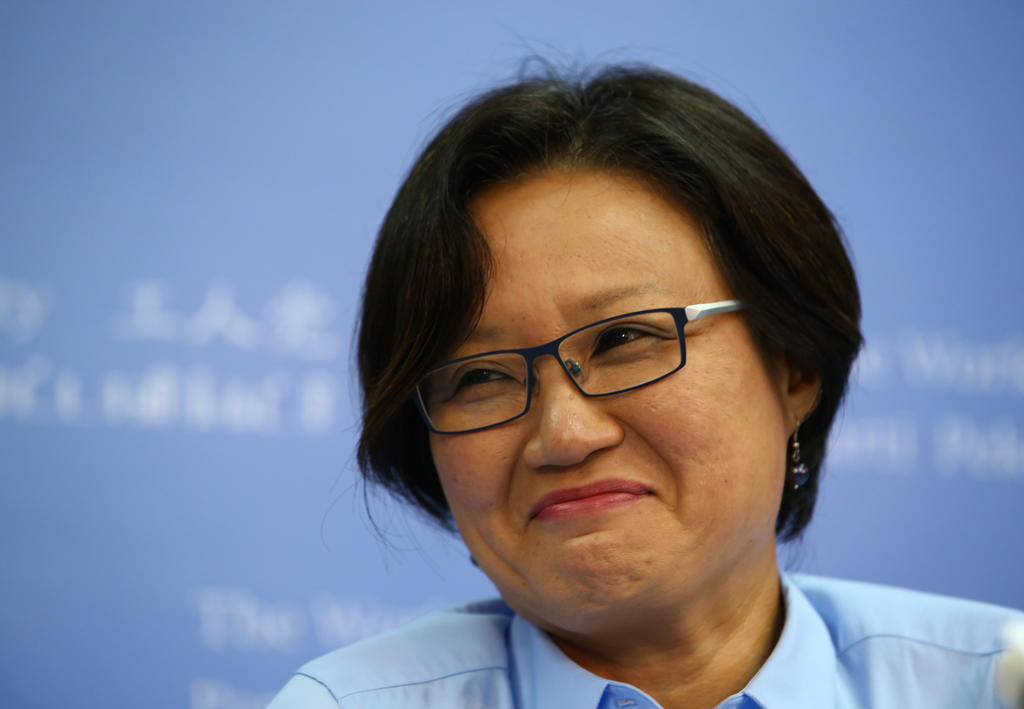MPs raise concerns over lower bar for scandalising the court
Sign up now: Get ST's newsletters delivered to your inbox

Workers' Party chairman Sylvia Lim.
PHOTO: ST FILE
Several MPs yesterday took issue with the Administration of Justice (Protection) Bill over how it relaxes the requirements for the offence of scandalising the judiciary.
Workers' Party (WP) chairman Sylvia Lim (Aljunied GRC) said she found "several things abhorrent about this Bill and the way it is being bulldozed through Parliament". She also said it was "unnecessarily lowering the threshold for what amounts to scandalising the courts".
The Bill modifies the test of scandalising the judiciary from one of "real risk" to one of just "risk".
Nominated MP Mahdev Mohan, an assistant professor of law at Singapore Management University, said the Court of Appeal had carefully decided that the "real risk" test should be the applicable test, and asked why the House should statutorily depart from a rule followed by the apex court. He asked: "Are we moving backwards to a test which has a lower threshold by only using the word 'risk'?"
Mr Pritam Singh (Aljunied GRC) raised a similar point, pointing to how the "real risk" test strikes a balance between freedom of speech and contempt of court.
He said the Bill gives "extraordinary power" to the Government and risks upsetting this balance.
Non-Constituency MP (NCMP) Dennis Tan said the move from a "real risk" test to one of just "risk" significantly lowers the bar for liability when it comes to scandalising the court.
"To me, it seems to be everything that the Court of Appeal has said about what a real risk test should not be. We should not depart from the learned decision and analysis of the Court of Appeal," he argued.
The proposed maximum punishments - a fine of up to $100,000 and jail of up to three years - "far exceed" current practices, he added.
NCMP Leon Perera said the Government is "prescribing harsh penalties to statute and defining contempt of court expansively".
He added that the Government has to explain why it is "opting to move aggressively in the reverse direction" by codifying the offence.
People's Action Party MPs like Mr Edwin Tong (Marine Parade GRC) spoke in favour of the law, but sought clarity on the difference between internal discussion and public dissemination when it comes to whether one, say, imputes improper motives or impugns the impartiality of a court.
Minister's response
Mr Shanmugam agreed that the one change the Bill makes to the law is that the test for scandalising the court has "come down" from "real risk" to one of "risk".
While it is a reasonable view that lawmakers should stick to what the courts have said, he added that the executive "is uniquely placed to take a broader policy perspective, including how we develop or how we should protect" the judiciary.
"The courts fundamentally are engaged not in a policy exercise: They don't weigh up economic considerations, the larger social policy considerations, they look very narrowly at case law and say this is the law," he said.
Singapore's reputation as a jurisdiction known for unchallenged independence and impartiality has drawn eminent judges from across the world to the Singapore International Commercial Court, he noted.
"It's a weighing exercise: On the one side, it's the integrity of the institution and on the other side, the need for a very small number of people to say judges are biased, judges are corrupt," he said, adding that the House is "in a better position as a matter of policy to decide what the law ought to be".
He also replied to Mr Mohan that there is "no backsliding" of the law, and that the way case law has defined it will provide the best guide.
As for maximum penalties, Mr Shanmugam said the House sets them out, but it is for the court to sensibly apply different penalties, based on facts, depending on how egregious the contempt is.
The law actually narrows maximum penalties by defining them: "Previously, it was unlimited, and today, if the Bill is passed, once it comes into force, it will be limited.
"And that's a change to be welcomed," he added.


